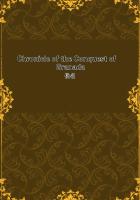Fragment #1 --
Athenaeus xi, p. 491 d:
And the author of "The Astronomy", which is attributed forsooth to Hesiod, always calls them (the Pleiades) Peleiades: `but mortals call them Peleiades'; and again, `the stormy Peleiades go down'; and again, `then the Peleiades hide away....'
Scholiast on Pindar, Nem. ii. 16:
The Pleiades.... whose stars are these: -- `Lovely Teygata, and dark-faced Electra, and Alcyone, and bright Asterope, and Celaeno, and Maia, and Merope, whom glorious Atlas begot....'
((LACUNA))
`In the mountains of Cyllene she (Maia) bare Hermes, the herald of the gods.'
Fragment #2 --
Scholiast on Aratus 254:
But Zeus made them (the sisters of Hyas) into the stars which are called Hyades. Hesiod in his Book about Stars tells us their names as follows: `Nymphs like the Graces (1), Phaesyle and Coronis and rich-crowned Cleeia and lovely Phaco and long-robed Eudora, whom the tribes of men upon the earth call Hyades.'
Fragment #3 --
Pseudo-Eratosthenes Catast. frag. 1: (2)
The Great Bear.] -- Hesiod says she (Callisto) was the daughter of Lycaon and lived in Arcadia. She chose to occupy herself with wild-beasts in the mountains together with Artemis, and, when she was seduced by Zeus, continued some time undetected by the goddess, but afterwards, when she was already with child, was seen by her bathing and so discovered. Upon this, the goddess was enraged and changed her into a beast. Thus she became a bear and gave birth to a son called Arcas. But while she was in the mountains, she was hunted by some goat-herds and given up with her babe to Lycaon. Some while after, she thought fit to go into the forbidden precinct of Zeus, not knowing the law, and being pursued by her own son and the Arcadians, was about to be killed because of the said law; but Zeus delivered her because of her connection with him and put her among the stars, giving her the name Bear because of the misfortune which had befallen her.
Comm. Supplem. on Aratus, p. 547 M. 8:
Of Bootes, also called the Bear-warden. The story goes that he is Arcas the son of Callisto and Zeus, and he lived in the country about Lycaeum. After Zeus had seduced Callisto, Lycaon, pretending not to know of the matter, entertained Zeus, as Hesiod says, and set before him on the table the babe which he had cut up.
Fragment #4 --
Pseudo-Eratosthenes, Catast. fr. xxxii:
Orion.] -- Hesiod says that he was the son of Euryale, the daughter of Minos, and of Poseidon, and that there was given him as a gift the power of walking upon the waves as though upon land. When he was come to Chios, be outraged Merope, the daughter of Oenopion, being drunken; but Oenopion when he learned of it was greatly vexed at the outrage and blinded him and cast him out of the country. Then he came to Lemnos as a beggar and there met Hephaestus who took pity on him and gave him Cedalion his own servant to guide him. So Orion took Cedalion upon his shoulders and used to carry him about while he pointed out the roads. Then he came to the east and appears to have met Helius (the Sun) and to have been healed, and so returned back again to Oenopion to punish him; but Oenopion was hidden away by his people underground. Being disappointed, then, in his search for the king, Orion went away to Crete and spent his time hunting in company with Artemis and Leto. It seems that he threatened to kill every beast there was on earth; whereupon, in her anger, Earth sent up against him a scorpion of very great size by which he was stung and so perished. After this Zeus, at one prayer of Artemis and Leto, put him among the stars, because of his manliness, and the scorpion also as a memorial of him and of what had occurred.
Fragment #5 --
Diodorus iv. 85:
Some say that great earthquakes occurred, which broke through the neck of land and formed the straits (3), the sea parting the mainland from the island. But Hesiod, the poet, says just the opposite: that the sea was open, but Orion piled up the promontory by Peloris, and founded the close of Poseidon which is especially esteemed by the people thereabouts. When he had finished this, he went away to Euboea and settled there, and because of his renown was taken into the number of the stars in heaven, and won undying remembrance.
ENDNOTES:
(1) This halt verse is added by the Scholiast on Aratus, 172.
(2) The "Catasterismi" ("Placings among the Stars") is a collection of legends relating to the various constellations.
(3) The Straits of Messina.














